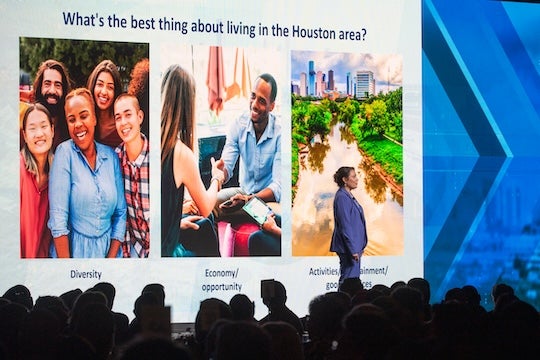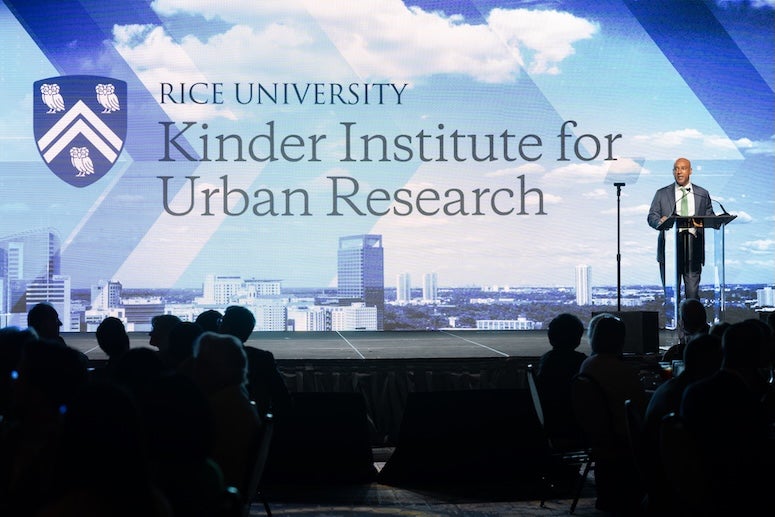The Hilton Americas ballroom buzzed with energy as nearly 1,000 civic leaders, researchers and community members gathered to celebrate a milestone: the 15th anniversary of Rice University’s Kinder Institute for Urban Research and the release of its 2025 Kinder Houston Area Survey — the largest and most expansive in the survey’s 44-year history.

The sold-out luncheon raised more than $600,000 to support the institute’s work — a sign of the public’s growing investment in the data shaping Houston’s future.
“This luncheon was more than a celebration of our 15-year anniversary — it was a testament to the impact we can have when we work together to move Houston forward,” said Rose Rougeau, executive director of the Kinder Institute’s external affairs division.
Rice President Reginald DesRoches called the institute “one of the university’s most impactful institutions,” citing its national reputation for data-driven urban research and its alignment with the university’s strategic goal to build thriving urban communities.
This year’s survey significantly expanded its reach, collecting responses from nearly 10,000 residents across Harris, Fort Bend and Montgomery counties. “It’s so large that it’s very similar in size to some national surveys,” said Kinder Institute director Ruth López Turley. “But while they use 10,000 people to represent the entire country, we use that number to represent just three counties.”

The 2025 theme, Destination Houston, explores what draws people to the region, what they value and what challenges could hinder future growth. The top response to the question “What’s the best thing about living in the Houston area?” was the diversity of the people — followed by economic opportunity and the region’s cultural, culinary and recreational amenities.
“Residents are proud of what this region has to offer, from job prospects and higher education to parks, restaurants and cultural events,” said Daniel Potter, director of the institute’s Houston Population Research Center. “But that doesn’t mean there aren’t serious concerns.”
Among the most pressing challenges according to the survey: crime, traffic, the economy and housing affordability — with regional differences. Crime topped the list in Harris County, while traffic congestion was the top concern in Fort Bend and Montgomery counties.
Economic hardship was another key theme. “Only about a third of residents say they’re living comfortably,” Turley said. “And more than a third say they couldn’t afford a $400 emergency expense. That’s a sobering reality.”
Still, a sense of optimism emerged in the data — and in the room. A record 81% of respondents said the government should take action to reduce economic inequality, the highest percentage since the question was introduced in 2010. “We’re aware of the challenges, and we want to address them,” Turley said. “That’s what gives me hope.”

Ric Campo, CEO of Camden Property Trust, chairman of Port Houston and this year’s recipient of the institute’s Stephen L. Klineberg Award, echoed that sentiment. “If you can dream it, you can make it happen in Houston,” he said. “This is not the case in every major city — it’s our superpower.”
The event reflected on the institute’s evolution — from a small initiative launched in 2010 to a multifaceted research hub with five centers dedicated to education, housing, health, population and economic mobility. The day closed with a call to action.
“This research is a public good,” Turley said. “We rely on community support, so everyone can benefit.”
The full survey is available at kinder.rice.edu.

